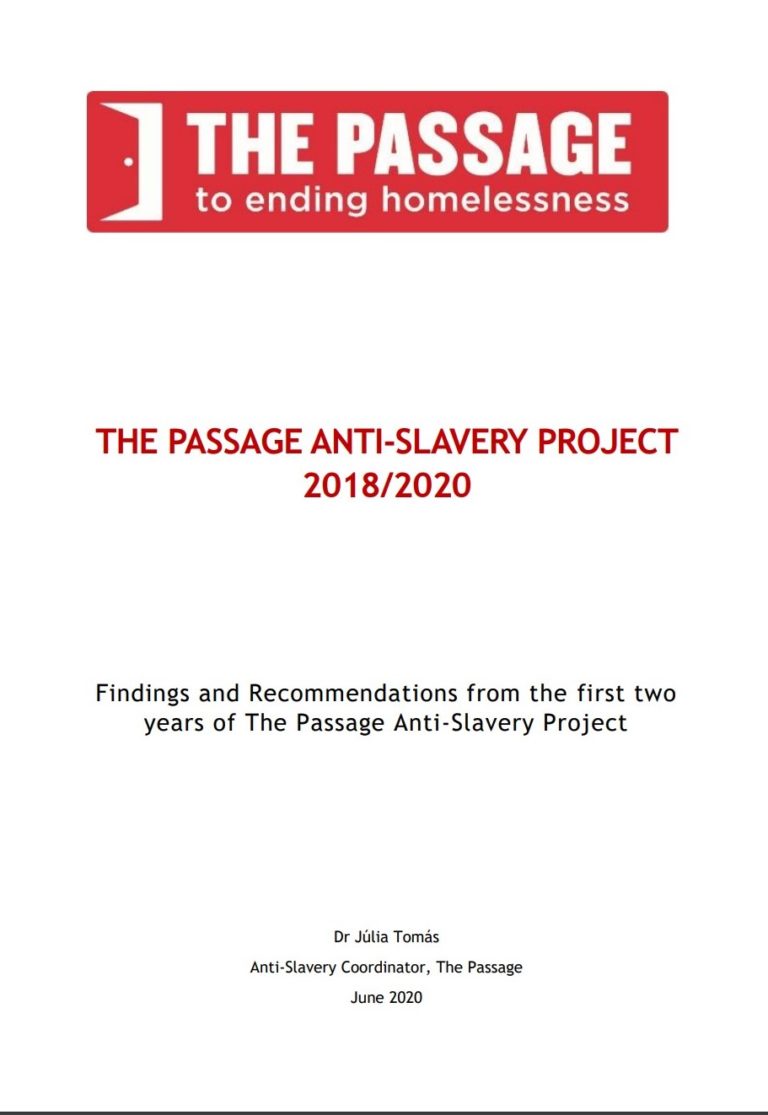This report depicts The Passage Anti-Slavery Project’s first two years, from June 2018 to June 2020.
The first section of the report describes the project’s objectives, the steering group which guided the project and its main key achievements. The achievements are related to the original goals of the project and to the recommendations of The Passage previous reports.
The second section presents The Passage findings on the support provided to potential and confirmed victims of modern slavery during this two-year period. This section includes a description and summary of findings of the Modern Slavery MultiAgency Case Conferences pilot project in Westminster.
The third section describes a Modern Slavery Navigators pilot project in the homelessness sector in partnership with Westminster City Council. It also addresses the challenges during the Covid 19 outbreak.
Finally, a set of recommendations are proposed based on The Passage experience.
The aim of the report is to share our findings and recommendations to help take steps to address gaps and areas of development in victim support pathways specific to homeless people and rough sleepers, and also highlight positive partnerships that have and are being developed to provide immediate support when a potential victim is identified that could be replicated.

